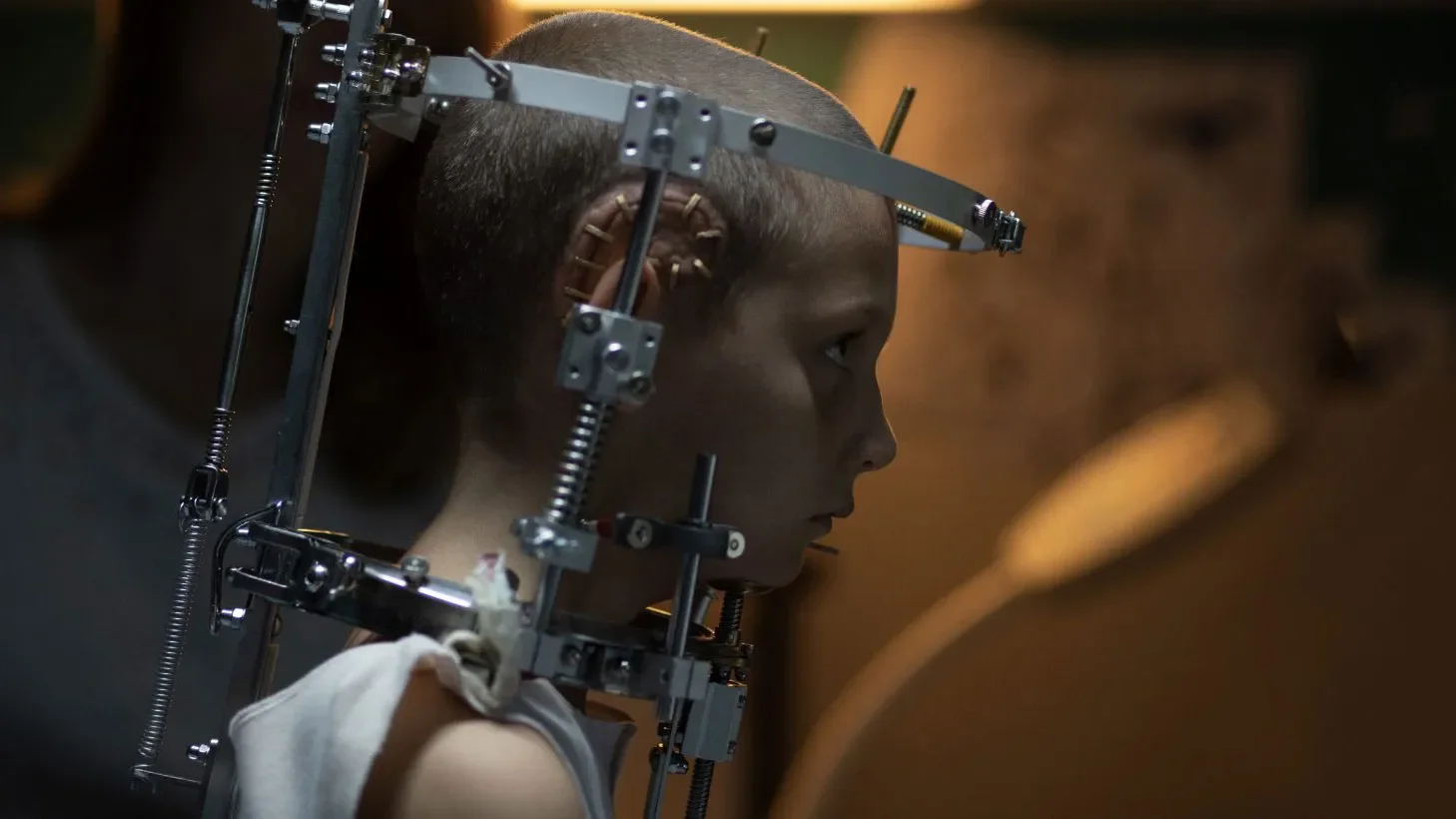Disguised to Survive: Vulnerability in Titane
Photograph courtesy Diaphana
Titane (2021) is a French body-horror thriller written and directed by Julia Ducournau. The film follows Alexia, a young woman with a titanium plate in her skull after a childhood car accident, as she begins a violent, dreamlike journey marked by a string of murders. Blurring the boundaries between human and machine, gender and identity, the story explores transformation, desire, and the fusion of flesh and metal.
I watched Titane after seeing Ducournau’s earlier film Raw and was struck by Alexia’s metamorphosis. Her experience resonated with my own history of a traffic accident and the surgeries that reshaped both my body and my outlook on the world. The film presents transformation through violence, pregnancy, and surgical disguise, echoing Julia Kristeva’s concept of abjection—when the body confronts what is at once part of itself and profoundly other.
In my practice, I explore scars, hidden disability, and bodily trauma through sculpture, sound, and performance, engaging the same confrontation. I am drawn to the way the film invites viewers to witness the body’s capacity to hold horror and hope simultaneously. Ducournau wields body horror not to repel but to evoke empathy for a radically different being.
I was particularly moved by the moments of disguise and survival: Alexia breaking her nose and binding her chest and pregnant belly to escape recognition; Vincent injecting testosterone in a desperate effort to deny aging and maintain strength. These scenes of raw vulnerability mirror my own experience of masking disability to navigate an ableist world. Their blunt, visceral force informs my work, which seeks a similar duality—simultaneously beautiful and unsettling—inviting audiences to feel with and through the strange, and to cultivate empathy for bodies that defy easy understanding.
Ducournau, Julia, dir. Titane. 2021; Paris: Diaphana Distribution, 2021. Film.
